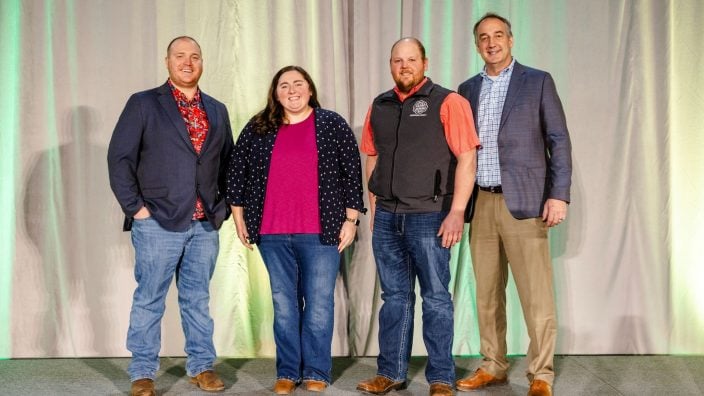Applications for Ohio Farm Bureau Health Plans now available
Members have three ways to apply: contacting a certified agent, calling 833-468-4280 or visiting ohiofarmbureauhealthplans.org.
Read MoreJudicial elections, and the candidates running in them, continue to be a mystery to Ohio voters. A majority of Ohio voters say that they skip voting in judicial elections because they do not know enough about the candidates. This is alarming, considering that the judiciary is integral to the working of our government as the third co-equal branch. In 2020, Ohio voters in every county will elect judges for county and common pleas courts, all 12 courts of appeals districts, and two seats on the Ohio Supreme Court. These judges affect the lives of Ohioans in many ways, from their main role of interpreting the law, to more routine functions like traffic citations and estate administration.
Judicial races often do not have the same amount of publicity as the other races on the ballot, tied in part to more stringent fundraising limitations. And, unlike candidates for political offices, judicial candidates are bound by a code of ethics enforced by the legal profession.
In 2020, Ohio voters in every county will elect judges for county and common pleas courts, all 12 courts of appeals districts, and two seats on the Ohio Supreme Court.
Before you step into the voting booth, take some time to familiarize yourself with what judicial seats you will be voting on and the candidates running. Then, do some research on those candidates just like you would for any other race:
One struggle voters often have with judicial candidates is a lack of clear positions on specific issues. Voters may wonder where judges personally stand on specific issues like eminent domain or school funding, and may be frustrated that the candidates are not giving an answer to those types of questions. However, this is an important part of having a fair and impartial judicial system. Judges are prohibited from commenting on cases and controversies that may come before them, because it is their job to apply the law based on the facts at hand, regardless of their personal or political beliefs. Instead of specific issue positions, voters can ask judicial candidates about their judicial philosophy, or how the judge views different aspects of the law and decision-making.
A fair and impartial judiciary is a cornerstone of our government and a hallmark of our free society. As voters, it is our responsibility to look beyond the outcome and consider whether a judge had sound reasoning, based in law and fact, to bring about that decision.


Members have three ways to apply: contacting a certified agent, calling 833-468-4280 or visiting ohiofarmbureauhealthplans.org.
Read More

Legacy nutrient deductions enable new farmland owners to claim deductions on the nutrients within the soil on which healthy crops depend.
Read More

Farmers, agribusinesses and community members are encouraged to nominate their local fire departments for Nationwide’s Nominate Your Fire Department Contest through April 30.
Read More

Introduced by Sen. Paula Hicks-Hudson, SB 120 would establish the Urban Farmer Youth Initiative Pilot Program.
Read More

Gases, vapors, and fumes can all create risk. How can we measure and protect ourselves from them?
Read More

The Ohio Farm Bureau’s Young Agricultural Professionals State Committee has named its 2026 leadership and the individuals who will be serving on the state committee for 2026-2028.
Read More

The Ohio Farm Bureau Foundation has multiple scholarships available to Ohio students from rural, suburban and urban communities who are pursuing degrees with a connection to the agricultural industry.
Read More

With 100% bonus depreciation now permanent, farmers can deduct the full cost of a new agricultural building in the year it’s placed in service.
Read More

Lincoln Deitrick was named the Outstanding Young Farmer, Denver Davis won the Excellence in Agriculture Award, and Margaret Houts won the Discussion Meet.
Read More

Michelle Downing of Franklin County has been named finance director of county operations for Ohio Farm Bureau.
Read More